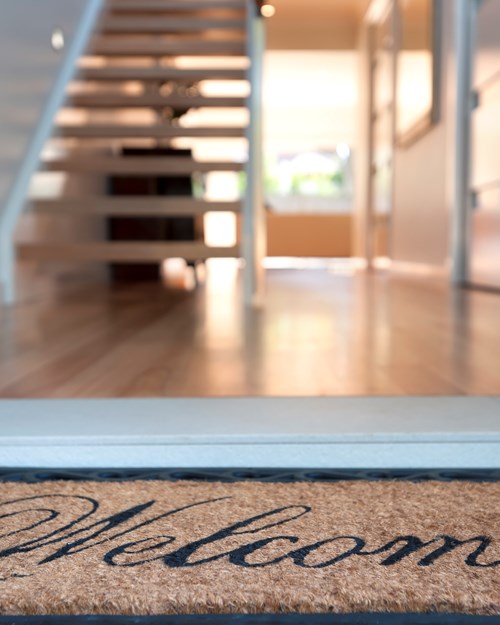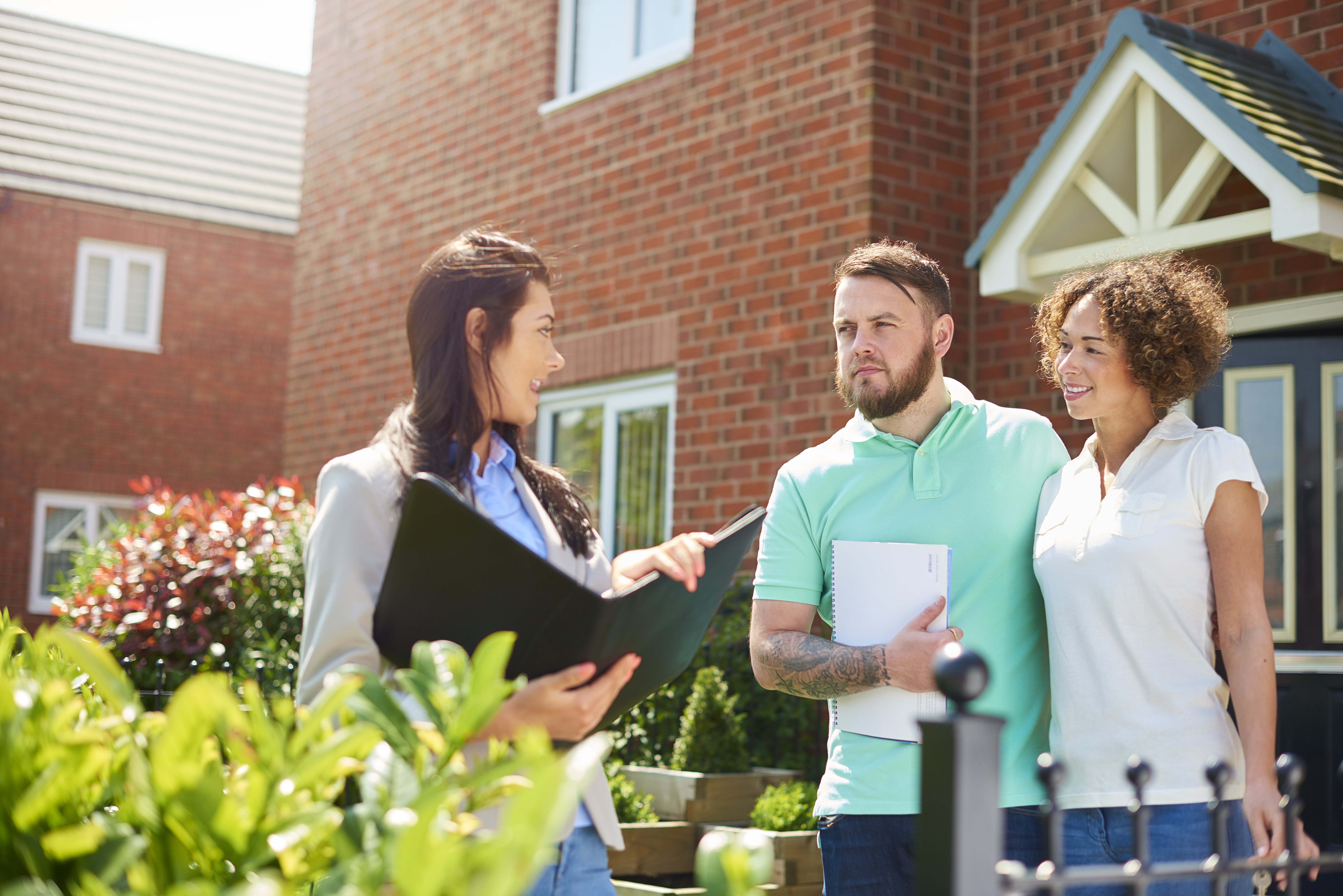
Should I sell?
Selling your home is a big decision. You should think about your motives for wanting to sell and see if there are other options available to you.
If you are looking to sell because you need extra living space, you could consider extending your current home. You may be able to borrow additional money from your mortgage lender to fund this and it could save you money and increase the value of your home.
If your current mortgage is too expensive, you should speak to one of our Mortgage Advisers before selling as we may be able to offer you a better deal. You can arrange an appointment by calling us on 0121 557 2551, visiting one of our branches or completing our online form.
You may benefit more from renting out your property instead, however you will need to speak to us regarding this as there may be extra fees involved.
Sometimes though, there may be no alternatives available to you. You may be looking to move to be closer to schools or family or you may just need a change of environment.
So if you have your heart set on moving home, where do you start? The first thing you should do is consider the costs of selling your home.
Costs of selling
The cost of selling your home is dependent on how much it is worth and where you live. Some of the key costs are described below.
Estate Agency Fees
The most common method of selling your home is through an estate agent. Your estate agent will deal with all the paperwork involved in selling your home, liaise with your solicitor and negotiate between yourselves and potential buyers. While many high street agents will also manage viewings, some online estate agents allow you to conduct these yourself.
There will usually be a charge for selling your home in this way, however different real-estate agencies have different fee structures, some of the most common are explained in the table below.
|
Fee |
Explanation |
Cost |
|
Commission Charge |
This will normally be a percentage of the price paid by the buyer. |
This can range from 1% up to 3.5% |
|
Fixed Fee |
More common with online estate agents, a fixed or ‘flat fee’ is charged upfront. |
This can range from as little as £99 for less know companies such as 99 Home to £1,499 for Purple Bricks. |
Process of selling through an estate agent
- Selecting your agent
When choosing an estate agent, it is recommended that you look around. Get recommendations from friends and family who have been in the same position as a starting point. Make sure you review your agent’s recent performance and ask plenty of questions. - Valuation and images
We would recommend having three valuations carried out by different estate agents. This will help you to shortlist your estate agent. Once you have chosen your agent, they will take professional images of your property for your property’s advertisement. - Viewings
Once your property is on the market, prospective buyers will arrange to come and view it, via your estate agent. - Negotiations
Following a viewing, buyers may make an offer on your property. This will not always be the asking price. Negotiations will be carried out between yourself and the buyers via your estate agent, until an agreement is reached. This is where the legal and mortgage processes will begin.
Legal Fees
You will need to instruct a conveyancer to deal with the legal process of selling your home. If you are buying a new property at the same time, it can be beneficial to use the same conveyancer for both processes. You may wish to get quotes from multiple conveyancers, to help you make the decision. It is worth asking what their processes are if the sale falls through, how often you will get updates and how long they expect the process to take.
Legal fees for selling a property are considerably less than selling and buying and are likely to include the below fees:
- Administration fees;
- Title deeds fees; and
- Transfer of ownership fees.
EPCs
An Energy Performance Certificate (EPC) is a standardised document that details the energy efficiency of your property. You will need to have one of these before you can sell your home. EPC’s were introduced in 2007 and are valid for 10 years, so you should check if you already have one in place.
You can get an EPC from accredited energy assessors, or through your estate agent. It is worth remembering that your agent may add a fee to arrange this for you. The price of attaining one yourself will depend on the provider and size of your property.
Removal Costs
You will have all your furniture and belongings to move from your existing property to your new home on the day of completion. To do this, you are likely to need to hire a van or pay a removals company to help with the process.
The cost of a removals company will depend on how much you have to move and what service you require. The cheapest option is to hire a self-drive van to pack and unload yourself. Other options include a professional company who will load your pre-packed boxes into the van and unload the boxes at your new property, alternatively some companies will even pack your boxes for you for a higher fee.
If you are looking to book a company to help with this process, it is recommended that you book in advance, to ensure they are available on your completion day.
Mortgage Costs
If you already have a mortgage on your property, you will need to move it to the new property you are purchasing, this is known as porting. Depending on your mortgage lender, there may be a fee to do this. Also, if you need to borrow more in order to afford your new home, you will need to have mortgage advice and there may be product fees associated with your new mortgage. Some mortgage lenders do not allow for porting, and so you will need to redeem your mortgage and apply again, this is where you may incur early repayment charges.
The best course of action is to book an appointment with your existing mortgage lender to discuss your options. On the call a mortgage adviser will go through your circumstances and explain the best path for you.
Preparing your home
Many people want a quick sale when selling their home. Buyers tend to look for space and are more likely to be able to visualise themselves in your house if you give them a blank canvas. Therefore it is important to get the basics right and make your home look as attractive as possible.
Kerb appeal
Ensure that the front of the house is presentable, this will be the first thing the buyer sees. Make sure your front garden or driveway are tidy and well maintained and ensure your windows and front door are clean.
Repairs and decoration
If there are any jobs or repairs that you've been putting off but need doing, make sure these are done beforehand to show that the house is well looked after and maintained. Neutral colours are more inviting to buyers than bold colours, so it may be worth giving your home a quick lick of paint. It is also important that your house is neat and tidy, make sure your sofas, carpets and appliances are clean. Remove any smelly bins and don’t cook any strong scented foods before a viewing.
Declutter and depersonalise
Having less things in a room can give the appearance of looking bigger and neater. Consider throwing away items you don’t need or tidying things into boxes and putting them into the loft.
Garden
Your garden is seen as an extension to the home, make sure it is neat and well-kept to look both entertaining and relaxing.

How much is your home worth?
You may want to get an idea of the value of your home. There are a few ways you can do this.
- Visit the Zoopla website, they offer a service where you can get a free estimate on the value of your home.
- You can arrange for an estate agent to visit your property and provide you with a valuation.
- www.mouseprice.com is a website operated by the Land Registry and allows you to see what similar properties in your area have recently sold for.
Estate agents
Most people chose to sell their house using estate agents as they have local property knowledge and experience, they will deal with the photography and advertising of the property and will arrange viewings and answer potential buyers’ questions. This service doesn't come for free though and they will charge a fee to sell your home for you.
There are some important things to ask when choosing an estate agent.
- What asking price are they looking to achieve?
- How much will they charge and what does this cover?
- How and where will they advertise your property?
- What type of contract will they use?
You will need to sign a contract with the estate agent, the types of contracts are detailed below.
- Sole selling: Only your chosen estate agent will be able to sell your home. Meaning if you find a buyer yourself you’ll still have to pay the estate agency fees.
- Sole agency: Only your chosen estate agent will be able to sell your home, however if you find a buyer yourself you don’t have to pay their fees.
- Joint agency: Two estate agents can advertise your home, the fees will then be split between the agents regardless of which one finds a buyer.
- Multiple agencies: You can have multiple estate agents selling your home, however only the agent who sells your home will get a fee.

Viewings
It is wise to leave arranging viewings to your estate agent, however there are some things to keep in mind. Make sure you remove any pets from the house as viewers may be allergic to them and pet hair will make the property look untidy. It is always beneficial to leave any parking at the property available to the buyers as it will help them to visualise your property as their new home.
Accepting an offer
Once you’ve received an offer on your property your estate agent will be in touch. Once you have accepted an offer you will need to ask your agent to take the property off the market, even once accepted you can still change your mind until contracts are exchanged.
Legal bits
You will now need your solicitor or licensed conveyancer to complete the legal work. They will arrange the title deeds, complete a property information form and deal with the signing of contracts leading to the completion of the sale.